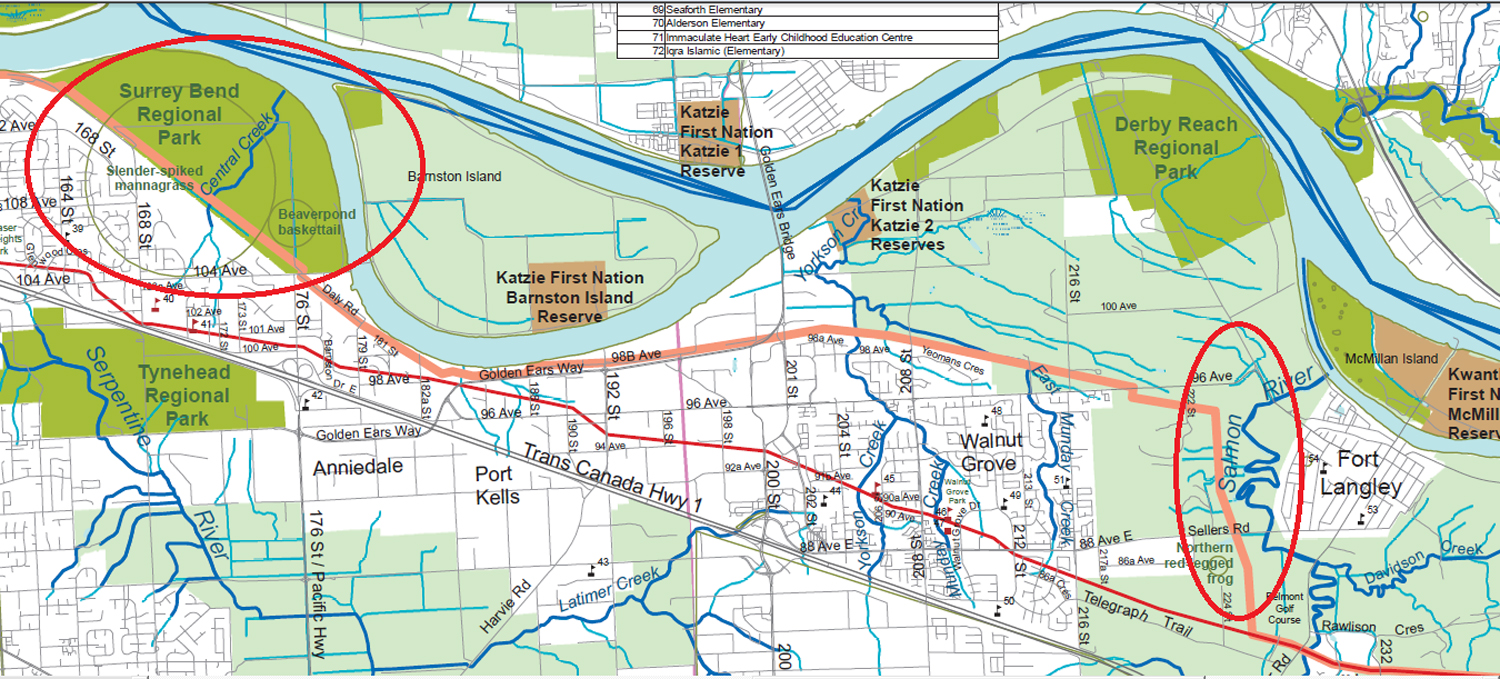UPDATE: SRES was one of thousands of groups to receive a letter from Kinder Morgan lawyers who are seeking the narrowest interpretation of who can participate in the National Energy Board hearings into the company’s proposed pipeline. The Globe and Mail reported on it and a lawyer for Living Oceans Society and Raincoast Conservation Foundation has responded.
The Salmon River Enhancement Society has written to the National Energy Board requesting intervenor status regarding the Kinder Morgan’s new pipeline through the Salmon River watershed. Here’s our statement:
SRES has been active in this area since 1995 and thus offers special expertise in the aquatic ecology of Salmon River area of Langley and the Surrey Bend ecosystem.
It is our opinion that the construction and operation of this pipeline will have unmitigated negative effects on the environmental sustainability of our community.
We recognize that there are broader social, economic and large-scale environmental impacts throughout British Columbia associated with this pipeline’s construction and operations. However, we will focus on the environmental effects of the pipeline on the Salmon River watershed and the Surrey Bend ecosystem of the Fraser River.
In particular:
1) Construction of the pipeline, as it is aligned now, will physically affect key aquatic and sensitive riparian areas. It puts at risk the Salmon River, a naturally meandering river in one of the last healthy ecosystems in Metro Vancouver and the lower Fraser Valley, due to riparian impacts and spill threats. The river is salmon-bearing and is classed as a “key stream” by the Department of Fisheries. It is home to 20 species of fish, including wild Coho salmon, non-natal rearing of Harrison River Chinook, cutthroat trout, steelhead and the endangered Salish sucker. The Surrey Bend Park, in our area, is also an extraordinary and valuable ecosystem that provides a fine example of the wetland/lowland aspects of the lower Fraser River and will be impacted. These two areas should not be endangered by pipeline construction. At a minimum, the alignment should be re-routed.
2) Pipelines are known to break, spill their contents, and create detrimental environmental impacts on watercourses, watersheds and aquifers. This is particularly acute when spills occur within or adjacent to streams, wetlands, or lakes where dispersal can be rapid and pervasive. There are numerous examples of this happening and we do not intend to provide a comprehensive list although we point to Exxon’s Silvertip Pipeline rupture on the Yellowstone River in July 2011 and Enbridge’s Line 6B pipeline break at the Kalamazoo River in July 2010 as two egregious examples. The dogleg alignment of the Kinder Morgan pipeline through the Fort Langley area now impinges on the lower Salmon River along the perimeter of its length for roughly two kilometers. Furthermore, the alignment in the Surrey area at the Barnston Island channel and Surrey Bend Regional Park also runs through extremely environmentally sensitive areas. We are emphatic that the alignment should be located much farther away from these key aquatic areas to mitigate the effects of leaks and spills on these two sensitive and highly valuable wetland and aquatic ecosystems.
3) Should Kinder Morgan not shift the alignment, a clear, comprehensive and environmentally defensible mitigation/compensation program must be put in place to address the affects to these sensitive wetland areas that will be so profoundly affected.
We’ll post more information about our application as it becomes available.
